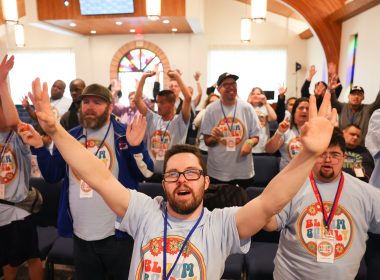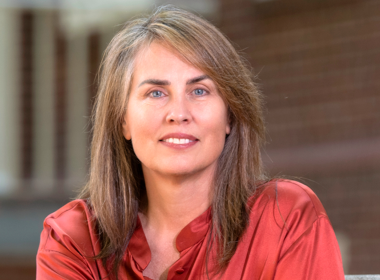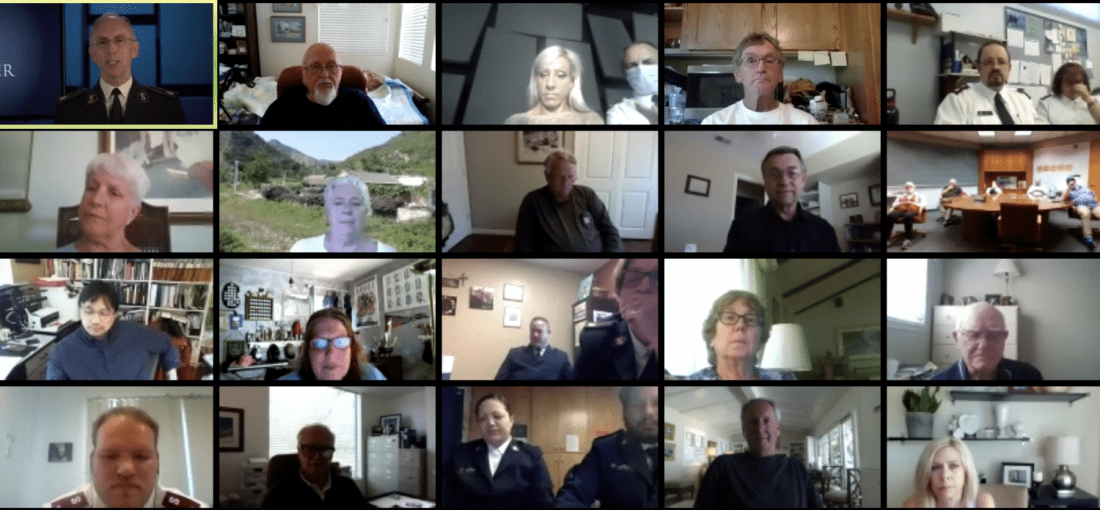Q&A with National Holiness Ambassadors Bill and Diane Ury
The Salvation Army is a holiness movement, but what does that mean? The concept of holiness can feel abstract, but Salvationists are called to holy living. At the Brengle West: Transformed Conference, held Feb. 6-9 in Nevada City, California, National Holiness Ambassadors Bill and Diane Ury served as guest leaders to encourage delegates to seek God’s holiness for their lives. New Frontier Chronicle asked the Urys to help demystify holiness, and how Salvationists can live it in their daily lives.
NFC: What is Holiness?
Bill Ury: Holiness is the highest thing that a human can say about God. It is God’s essence, his nature. Every attribute—his justice, his mercy, his sovereignty must be qualified by his holiness, which means that the being of the Holy One informs all that he does.
The crucial matter, however, is that holiness is not defined by us. It is revealed by God and it is offered to every person by God himself, so the key is that holiness is not a “what,” but a “who.” Yahweh told Moses that the ground he was standing was holy because the Lord himself was present. He makes holy wherever he is. The most important place he desires to dwell in his fullness is the human heart, and that is where we focus our attention. If he can have access to all of us, then his “all” can restore the moral image which was destroyed by sin. And if that occurs, then he is able to pour his holy love into our hearts for the sake of others.
NFC: Why does holiness matter to Salvationists?
Diane Ury: Holiness is the manifested, self-emptying nature of God that is more concerned about others than about self. Our motto is “others.” There’s no possible way to live for and serve the lost, last, least and unlovely without the cleansing presence of the only one who is that way—with a heart that isn’t false in motive, grumbling in spirit, or self-vaunting. Salvation is union with God. We can’t very well be “Salvation-ists” if we’re marching along in our own strength and ideas, can we?
BU: As we have traveled to every territory and have met the finest people we have ever known in the Army, it has become very clear: Holiness is the reason The Salvation Army exists. We must be as clear as possible in what we are preaching and producing as maturing disciples of Christ. Our continued ministry depends upon the depth to which we allow the reality of holiness to permeate our soldiers, our corps and especially our ministry. Every aspect of theology requires nuances and perspectives, but we must not allow an undercurrent of unbelief regarding holiness of heart and life to pervade our movement.
As a result of our commitment to the fullness of God’s life permeating our hearts and motivating all we do, we will find that this beautiful concept of holiness will be accused of claiming too much for the human life before heaven. We have been fed a line for too long. We have been told for centuries that the highest thing we can claim is that we are abject sinners. Though we understand sin very well, we believe in the Resurrection and Pentecost. God can do what he alone can do in everyone who desires to be transformed. Nothing in salvation is defined by our ability. Our Savior determines the limits. He sets the agenda for life and godliness. We do not have to sin because of the power of God in our hearts.
NFC: What are your goals for Brengle West and the National Seminar on Holiness?
BU: We hope to discern what Salvationists know about holiness. Theology can become abstract pretty quickly, but it is impossible for anyone to know Christ without being theological. So, we want to converse about the theology of holiness—what is understood by that and how is it applied to our lives? Also, we want to learn how each territory is encouraging this fundamental doctrine, experience and expression of holiness. We believe the Army is one of the few voices in the Church to emphasize the possibility of a clean heart and clean hands of service.
NFC: Culturally, how does holiness fit in?
DU: Our culture is crying out vividly for holiness. Every human person who ever lived is created with hunger for God. What manifests itself as vile sin and destructive behavior has its root in being separated from the one who is life, light, goodness and truth. Jesus Christ in himself is the healing of our separation from God. I believe with all my heart that holiness is the most relevant message for our culture: Whatever you’ve done, whatever filth seems to be clinging to your soul, however despairing your life seems, Jesus is your rescuer. He wants to make you his very own. He can cleanse you and he can make you good. He can heal your woundedness. You truly belong to him. You’re not alone.
NFC: Holiness feels so abstract, what does it look like in everyday life?
BU: The best term to describe holiness is Jesus. And the clearest revelation that he is on the throne of a human heart is love—selfless, other-oriented, active love. When God began to describe himself to Moses, he did not use abstract terms. He said I am warmly disposed toward you. I am kind. I am always faithful, always loving, and I never cease to be fair. (Ex. 34:4-6). As we move through Scripture those themes, actions, attitudes and expressions are found to be gifts offered to every believer. Think of the Beatitudes, the fruit of the Spirit, or any list of character traits in the epistles. Our Sanctifier does not want us to be confused or to buy into the belief that these gifts from his heart are only for a small, elite group of super-spiritual people. This is the real life that God has made us for. In spite of all the fall has done to destroy intimacy with him, the Son of God died and rose again and sent his Spirit to do a work in any believing and receptive heart which produces everyday holiness. He is able to turn us outside of ourselves in true love.
DU: Holiness shows itself in our lives through humility and speech, right off. When the Spirit of Jesus makes his home in us, we will not have such an appetite for being noticed, acknowledged or thanked. There’s a profound, almost secret joy that inhabits our daily duties. People who abide in intimate relationship with Jesus see the beauty in life, of the mundane and small things of daily living. Those of us who live in Christ, face to face, are drawn toward the beauty of his person, and life is not mundane or meaningless.












